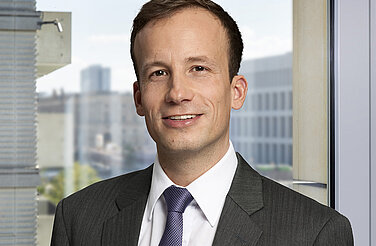-
Making Western Balkans’ power systems CO₂ free by 2045 is possible and would save money.
Producing electricity from renewable energy sources and green hydrogen will cost 15 percent less up to 2045 than relying on lignite or gas. A full decarbonisation of the region’s power system will require a total investment of 43 billion euros over 30 years, 12 billion euros more than the fossil baseline. Even if investments are higher, renewables deployment can largely be financed from market revenues.
-
A decarbonised power system ensures security of supply.
A reliable yet carbon-free power system can be achieved with a combination of renewables, storage (hydro, batteries, thermal storage) and 5 GW of green hydrogen fuelled power plants. Deeper regional integration can further reinforce security of supply.
-
Fossil gas is not a bridge fuel.
The need for more ambitious climate action together with high and volatile fossil gas prices and ever cheaper renewables undermine the business case for new fossil gas infrastructure: any new fossil gas plant risks becoming a “stranded asset”. If the Western Balkan countries invest in hydrogen-ready infrastructure and storage technologies instead, they can reduce cumulative fossil gas demand by 50 percent up to 2045 while cutting overall costs by 12 percent compared to a strategy that bets on fossil gas to replace aging lignite.
-
Storage technologies provide flexibility and enable renewables expansion throughout the region.
Greater energy storage capacity enables rapid growth in PV, the most easily scalable renewables technology. Storage also lowers the need for hydrogen power plants that will replace gas plants. It is important not to overestimate hydrogen needs when planning for corresponding infrastructure. 5 GW of green hydrogen plants, covering 7 percent of demand in 2045, are needed for power system security of supply.
Powering the future of the Western Balkans with renewables

Preface
The power systems of the Western Balkans are the most polluting in Europe. Their transformation towards renewables has begun to take shape. Yet, the pandemic, together with the war in Ukraine, have made this endeavour more complex. The conviction that domestic lignite is vital for security of supply has resurged given higher commodity prices and inflation.
The six countries of the Western Balkans have committed to fully decarbonising their economies by 2050, enshrined in the 2020 Sofia Declaration on the Green Agenda and the recent Decarbonisation Roadmap for the Contracting Parties of the Energy Community. By June 2023, Contracting Parties must submit draft National Energy and Climate Plans.
By showcasing options for fully decarbonising the Western Balkan power system by 2045, this study contributes to the public dialogue on this issue. The pathways presented here show how the countries can minimise costs and maximise security of supply while limiting the role of fossil gas and achieving zero-emission power systems. The study’s goal is to engage policymakers in the region and in the EU by providing robust economic modelling and insights.
To develop the study’s evidence-based scenarios for a net-zero power system by 2045, Agora Energiewende teamed up with enervis energy advisors, RESET from Bosnia and Herzegovina, INDEP from Kosovo and ASOR from Serbia. The takeaway is clear: Coal belongs to the past while fossil gas is not the bridge that will take us towards a decarbonised future. Furthermore, storage technologies are sure to play a vital role in the transition process.
The study “Powering the Future of the Western Balkans with Renewables” is accompanied by two slide decks containing detailed country-level and regional-level modelling results.
Key findings
Bibliographical data
All figures in this publication
Installed capacities (top) and power generation (bottom) ..in 2022, 2035 and 2045 in the Western Balkans
Figure 1 from Powering the future of the Western Balkans with renewables on page 6

Power market model
Figure 2 from Powering the future of the Western Balkans with renewables on page 11

















